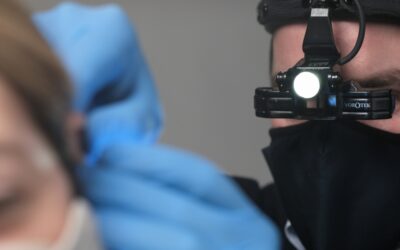If you are considering opening your own private practice in hearing healthcare, I have compiled a few tips below that may help with the decision. I have personal experience with both buying and selling my practice, and now I help my clients navigate the world of clinic start-ups. Below is the tip of the iceberg, so please schedule a time to meet with me virtually if you would like to learn more about starting your own hearing clinic.
1. Make sure entrepreneurship is right for you
Starting any new business is a big task – or rather – a long series of very small tasks. Although it is extremely rewarding, starting, growing, and operating your own business will consume a lot of your time and energy, especially during the start-up and growth phase, usually the first three to five years. Other areas of your life like family and leisure time are likely to see some sacrifice for you to realize your dream of working for yourself.
2. Make a personal financial plan
Like any new business, a hearing clinic’s first year of operation is likely to incur high cost and low revenue. Aside from a solid business plan, you will need to discuss the situation with your household and come up with a personal financial plan. I always tell my clients to anticipate earning $0 in the first year of operations. How does this play out at home? Your first-year results could be more positive, but you need to prepare yourself for the possibility of having no personal income in the first year of operations, and plan to earn less than you were making before you left your job in year number two.
3. Tax planning and legal support
When I purchased my own private practice, I decided early on that I would hire the best tax accountant (probably not the same one you use now!) and corporate lawyer that I could find. This proved to be one of the best decisions I could have made. Whether you are a sole operator or have a partner, early corporate planning and tax strategy to future proof your business is vital. I have worked with many clients who did not effectively structure their businesses at start-up, and it is a lot more costly to do so down the road.
4. Branding your clinic
Your business will likely grow and change in ways that you won’t have anticipated on day one, so starting with a solid brand identity is important. If you build the brand entirely around yourself, consider what happens when you hire clinical staff so you can spend more time with your family. If you name the clinic after the street it is on, what happens when you want to grow with additional locations or maybe even in new markets? This may not be your start-up plan, but these things should all be considered while branding the business.
5. Start in a small space
You do not need a lot of space, nor every piece of state-of-the-art equipment on your first day. An efficient, paperless hearing clinic can be operated in a 120 sq. ft. room, within a shared space with other allied healthcare professionals and shared reception. Once you have outgrown your space, built up some cash flow, and paid down any start-up loan, consider moving your practice to a larger space that might accommodate an independent reception area, room for advanced testing, and space for support personnel or other clinic personnel to work independently.
6. Stand out from the competition
The world of hearing care is changing rapidly and opening just another hearing aid clinic in a competitive environment is likely not going to result in new clients flooding through your doors. Take advantage of your employer’s professional development opportunities and other continuing education now, while you have the time. Fee-for-service work outside of hearing aid sales, generally reserved for audiologists, includes: vestibular assessment and rehabilitation, APD treatment, hearing conservation, tinnitus management, and cerumen management. Offering unique services and unbundling your services from the sale of hearing aids will prepare you for the future of hearing care.
7. Avoiding burnout
Since you will be responsible for so many aspects of your business, you should not plan to work clinically five days per week. This is never a problem on day one, but as your business grows, you need to reserve time to work on your business instead of in your business. I found a good balance working four clinical days and one day on operational items, like marketing, growth, HR, etc.
If you found this blog helpful, please share it on social media!





